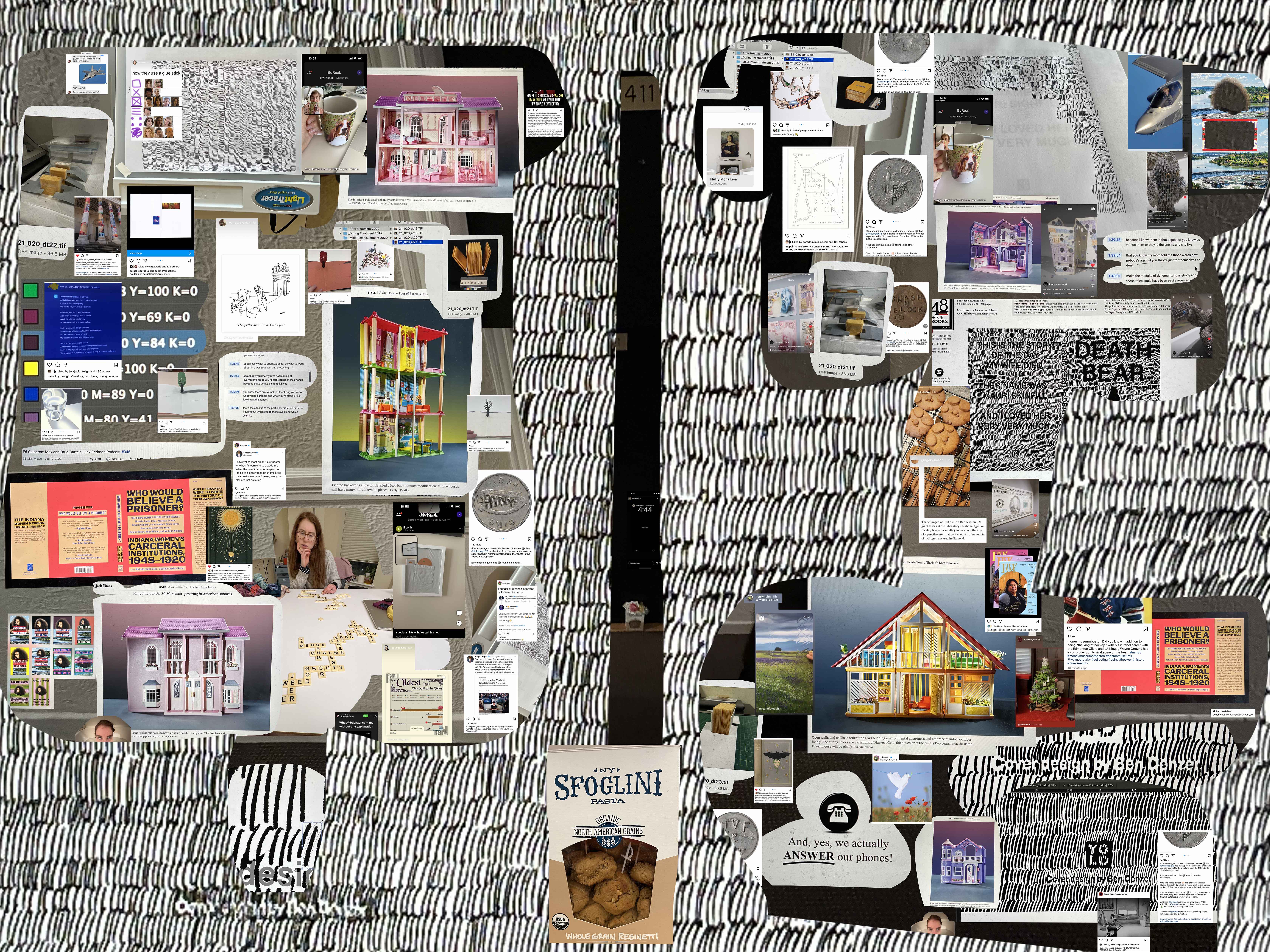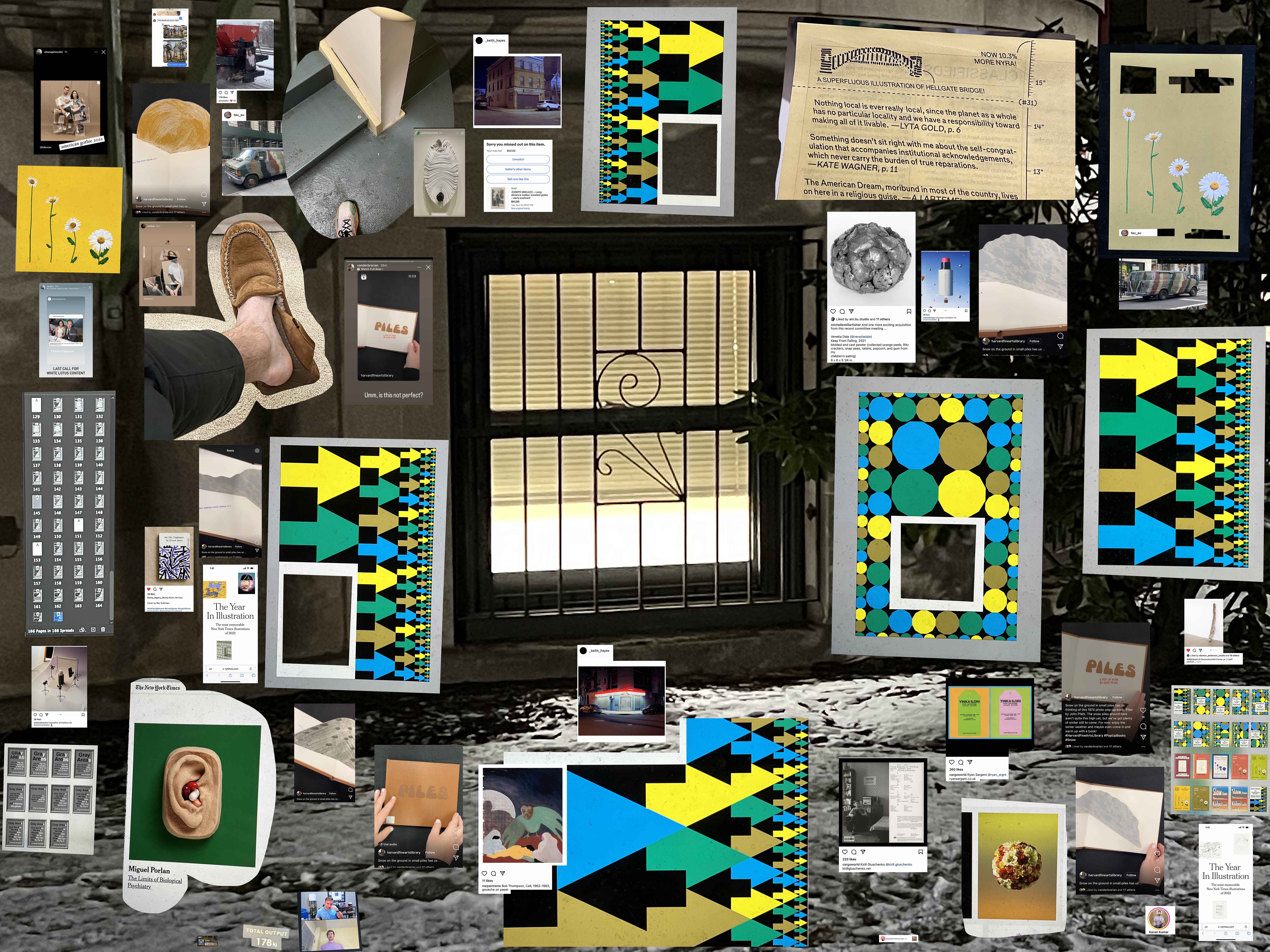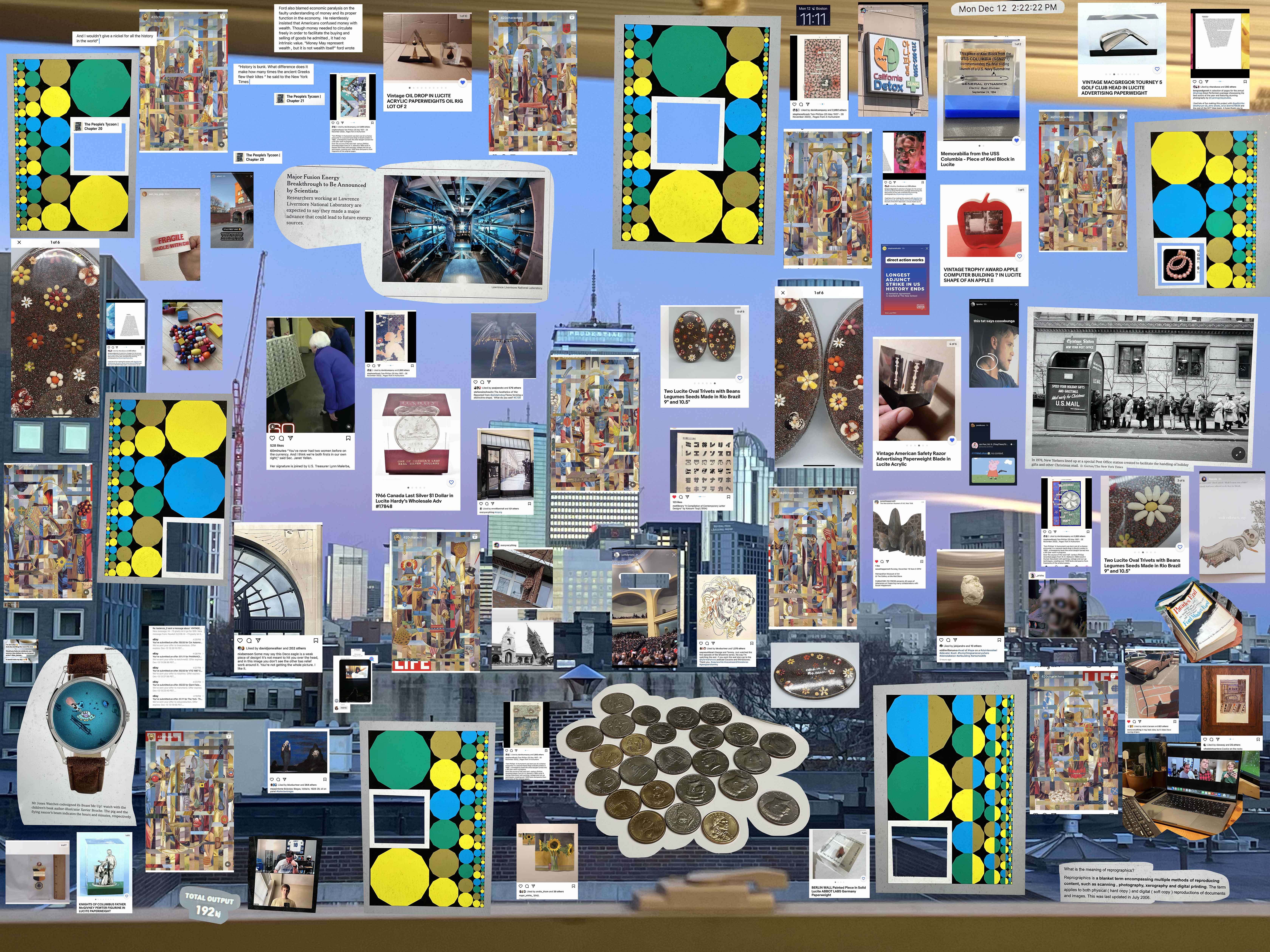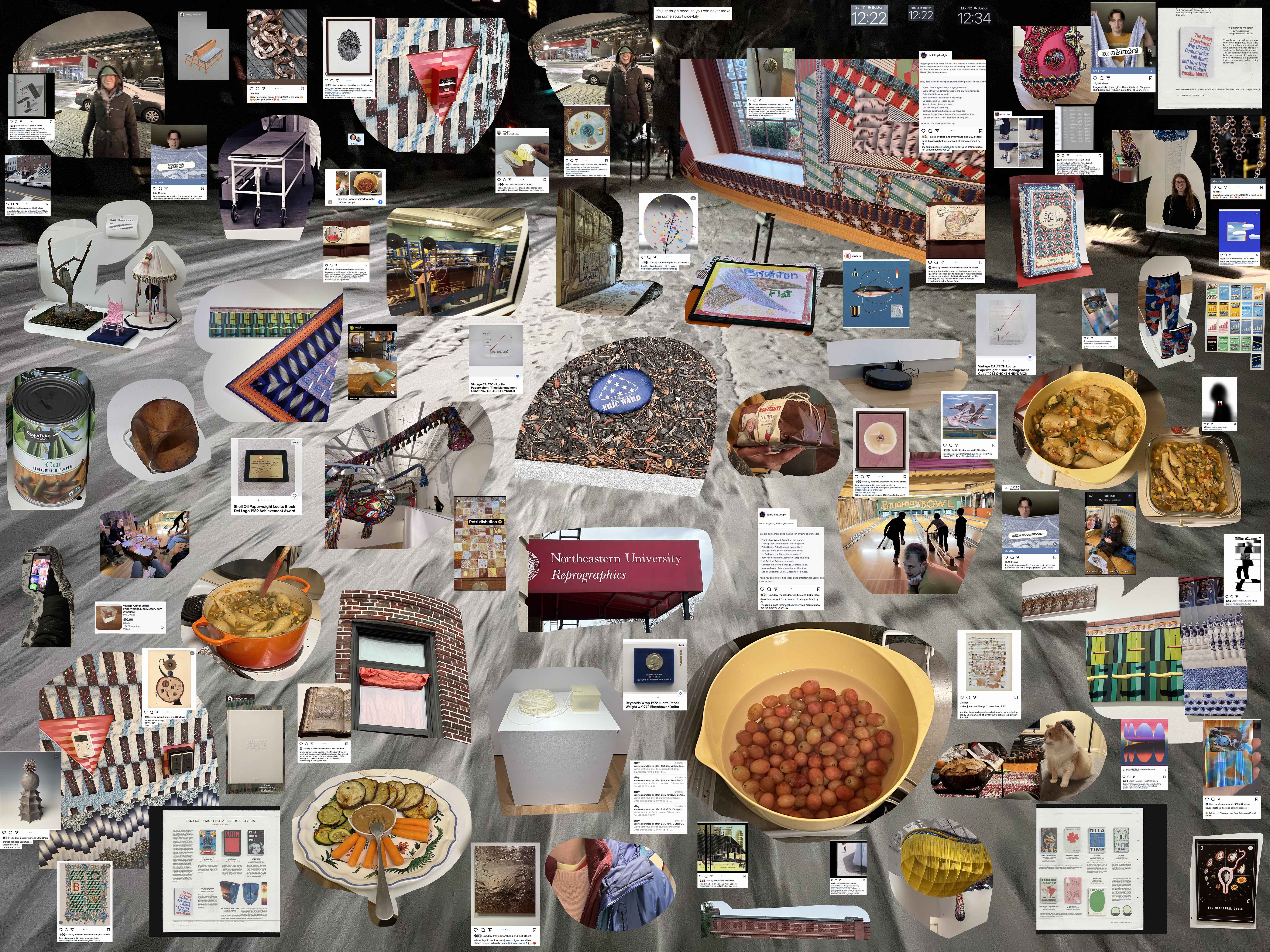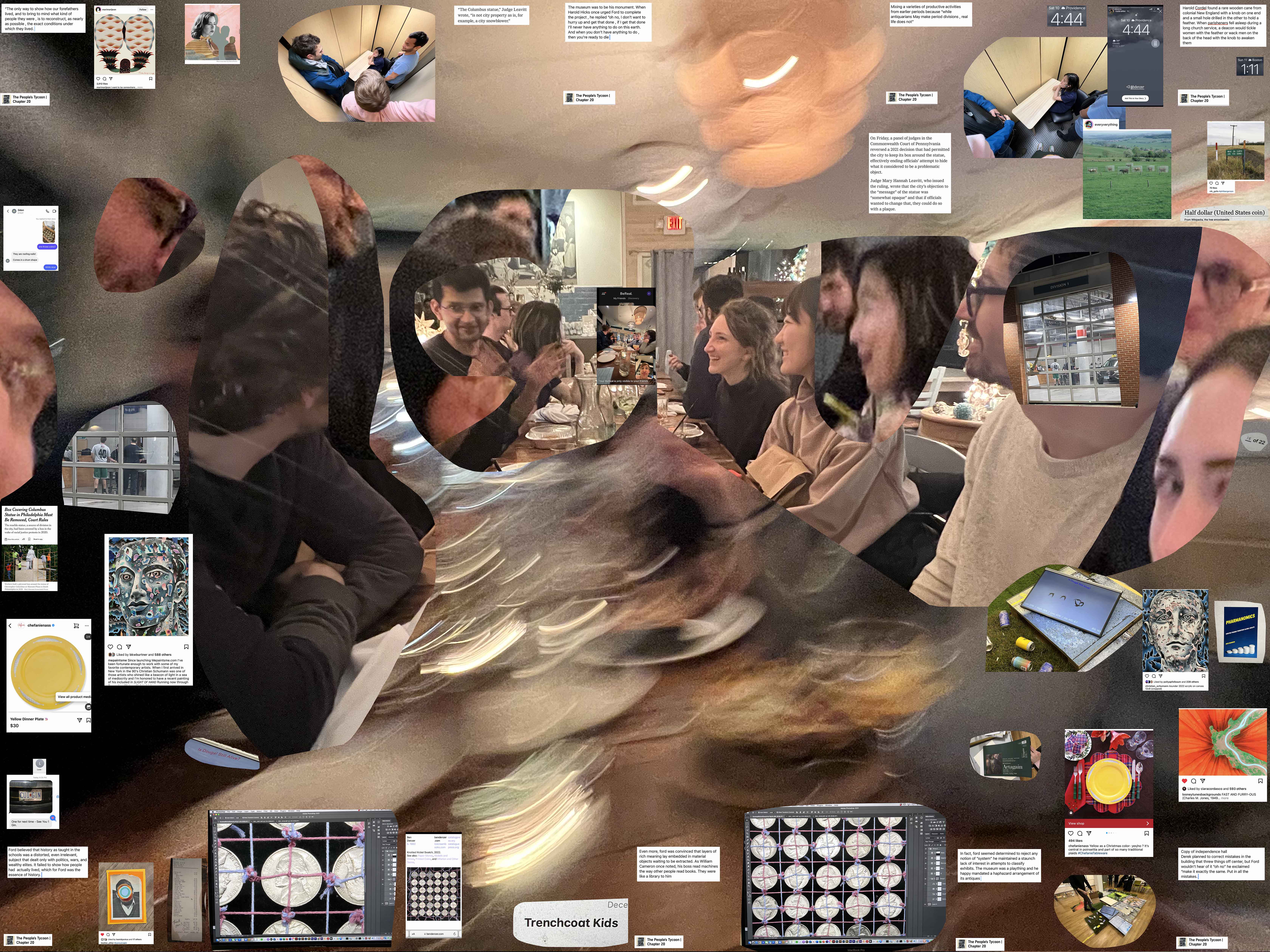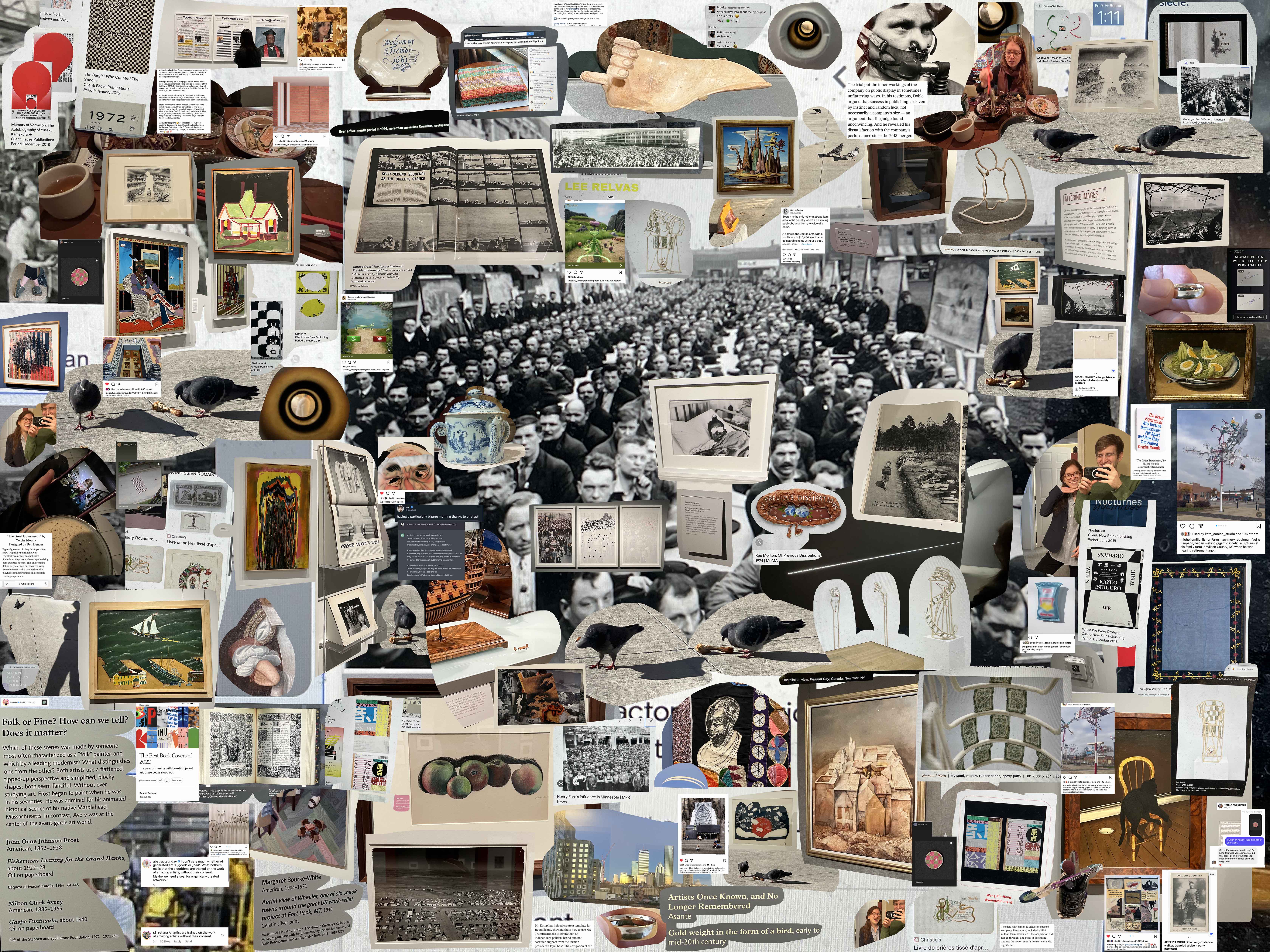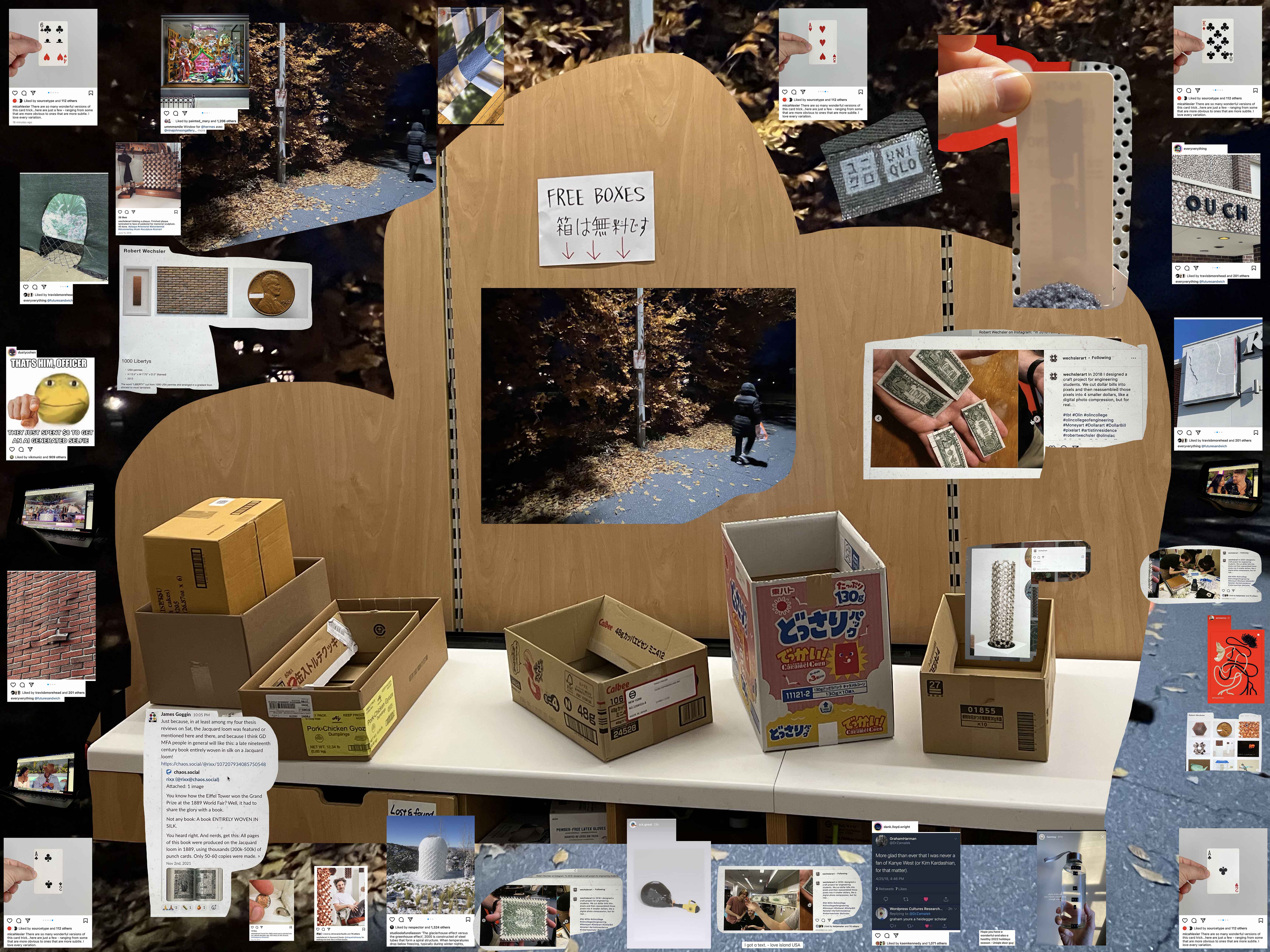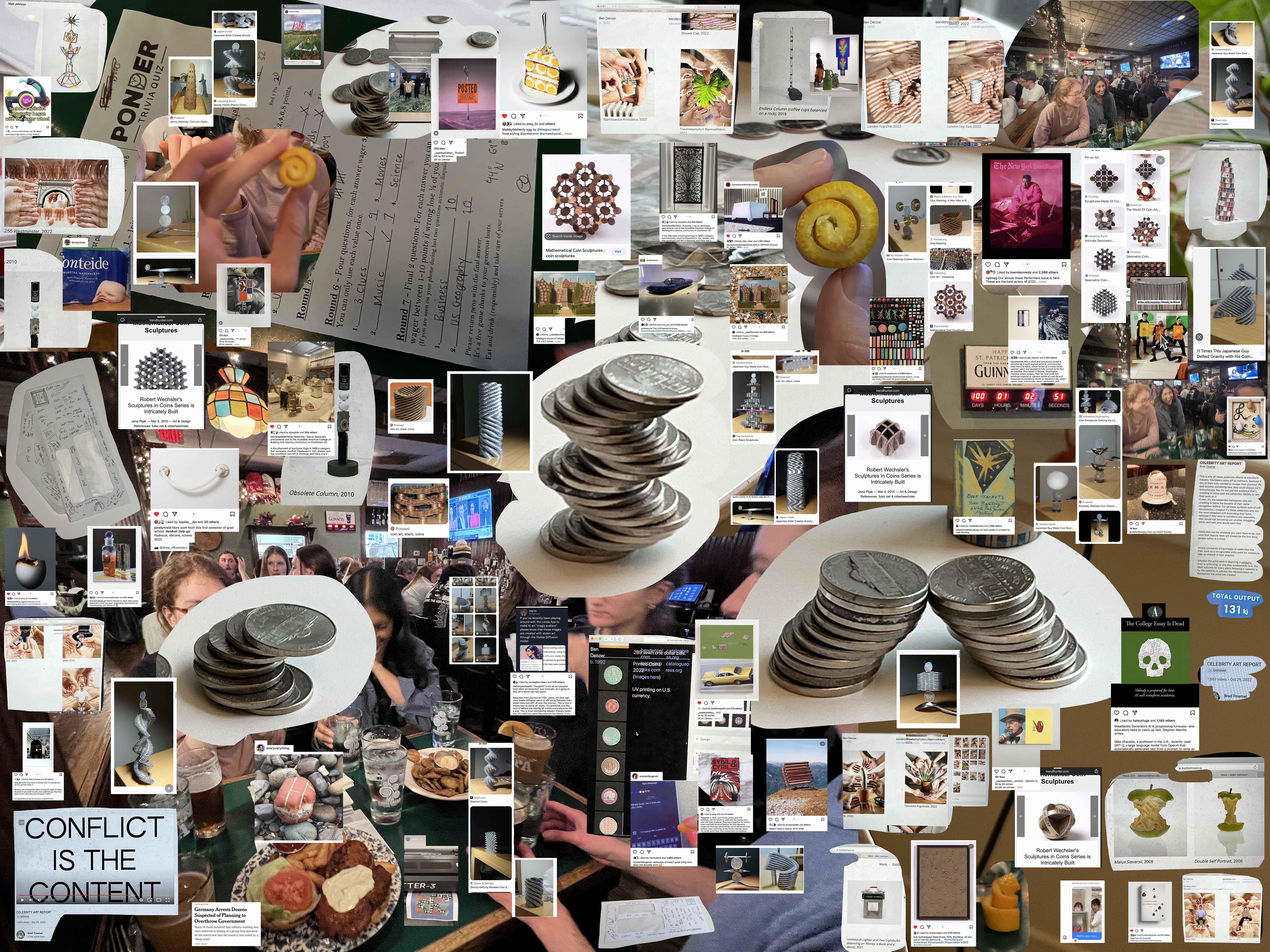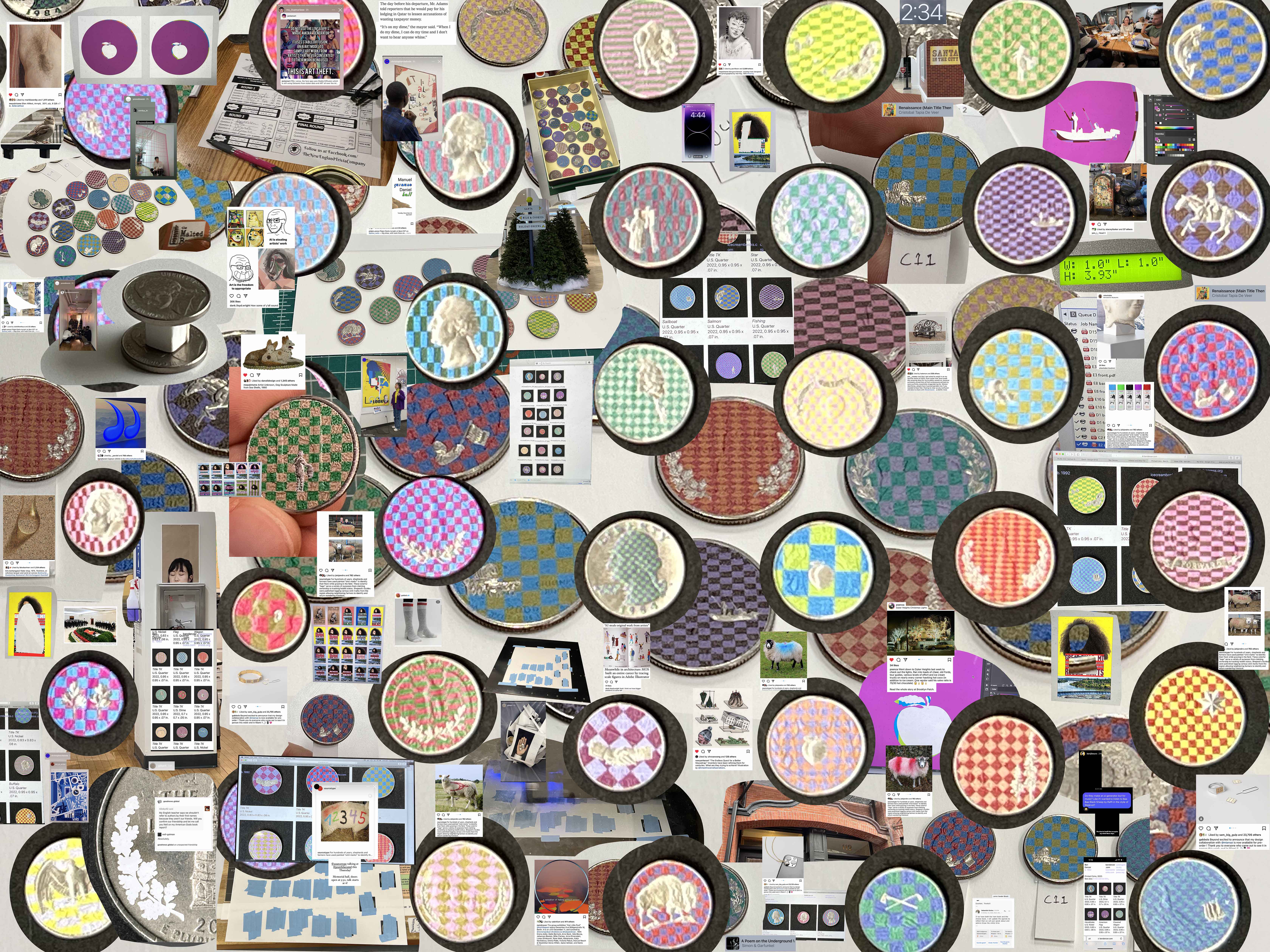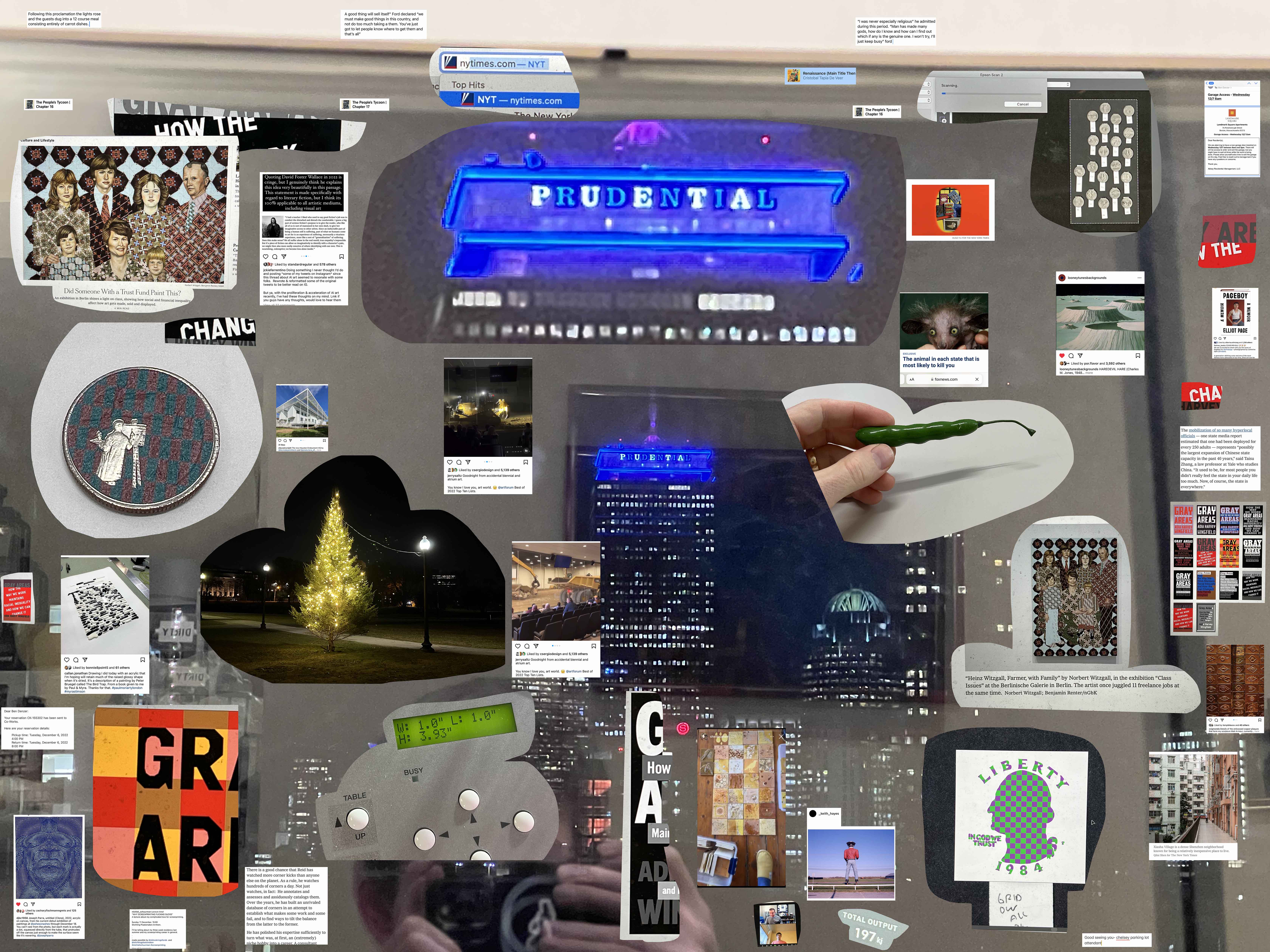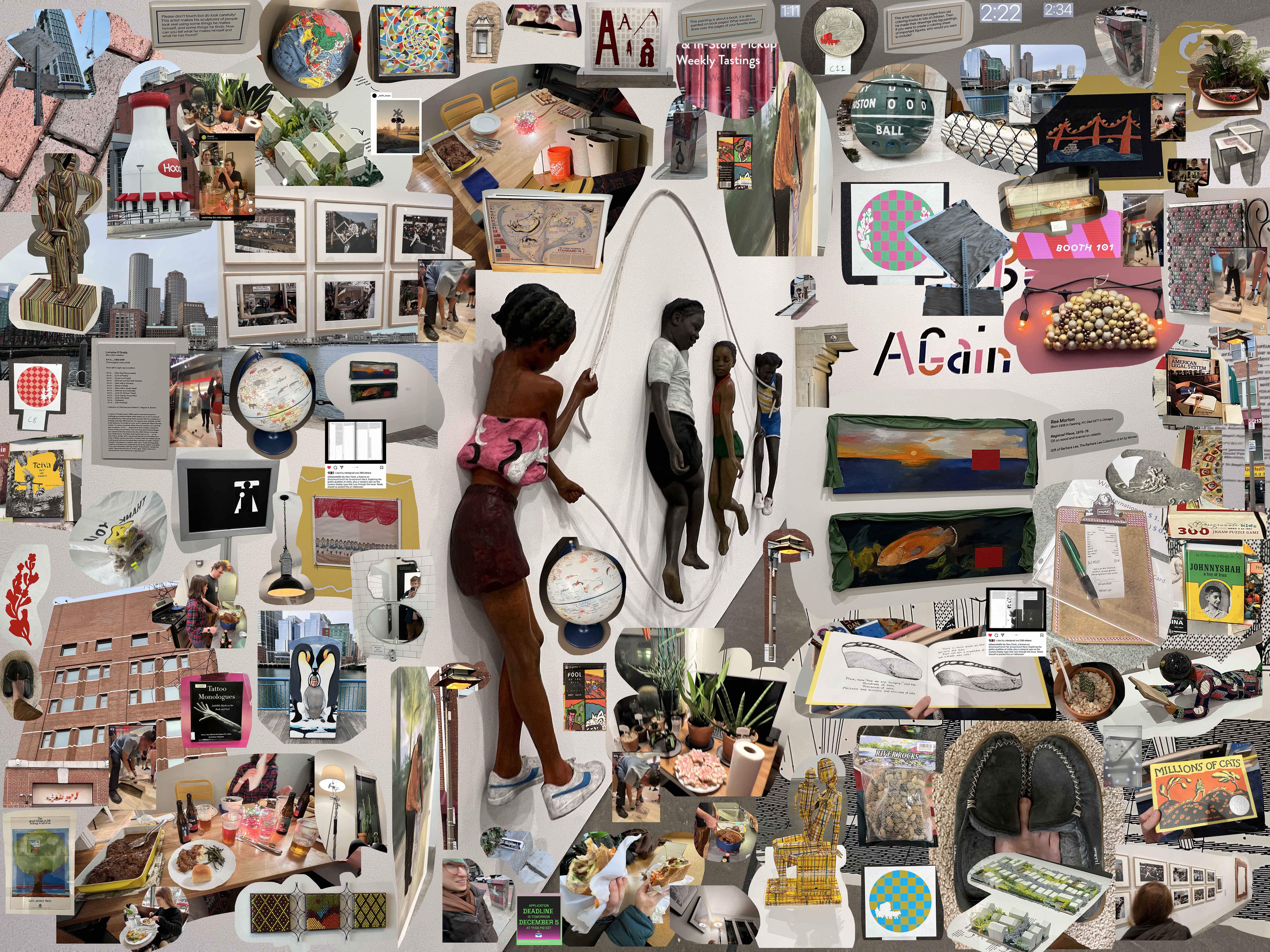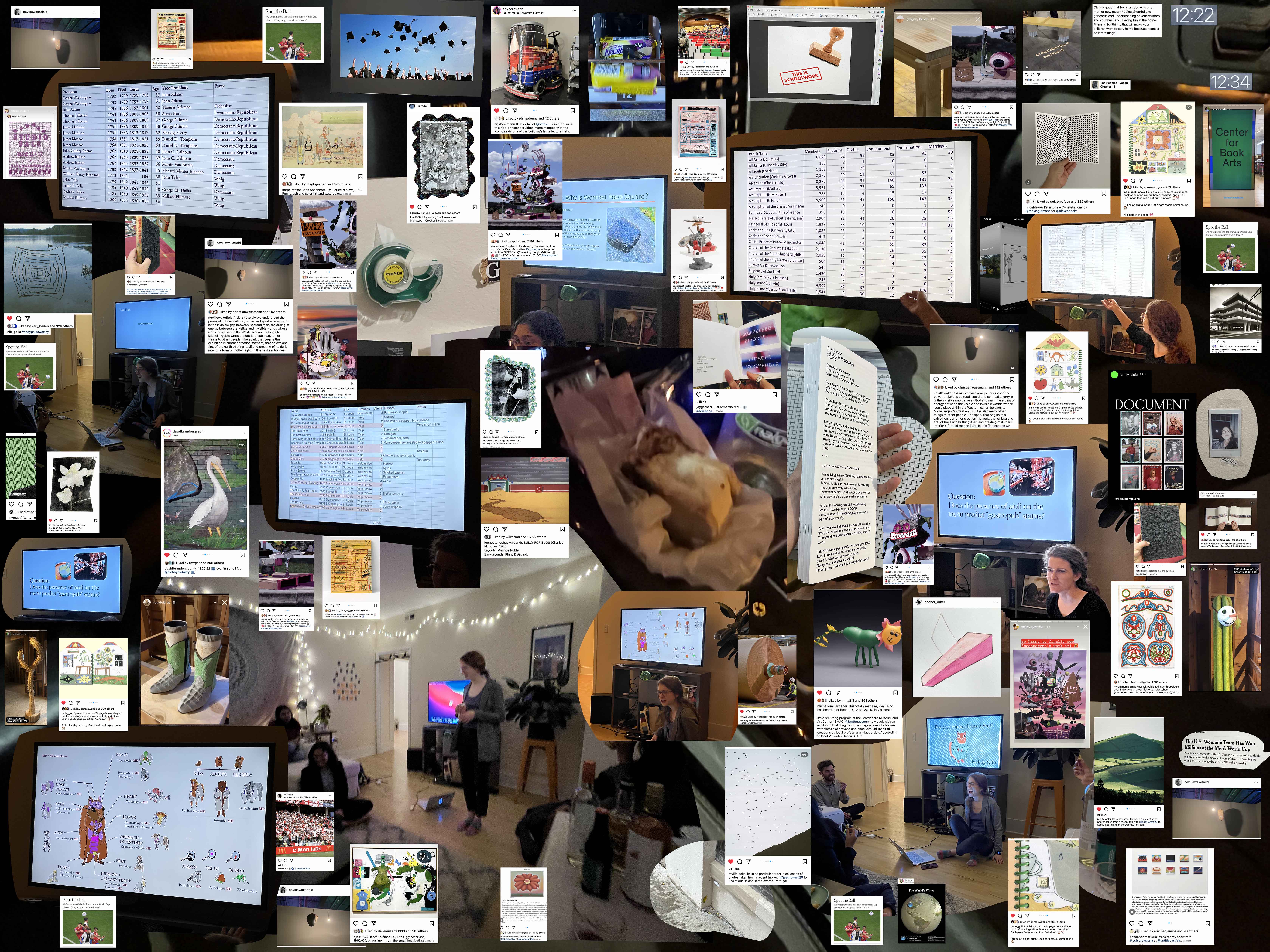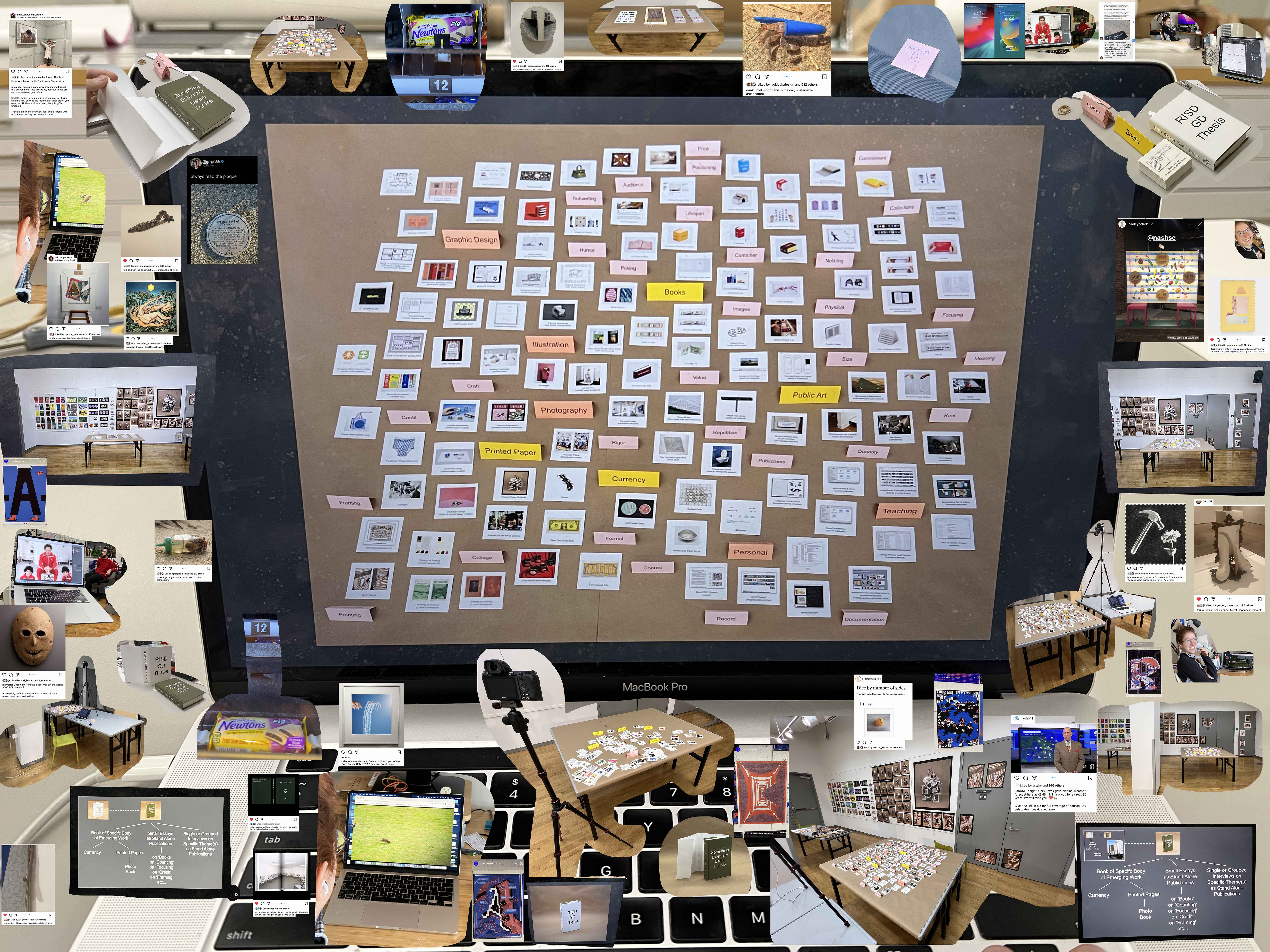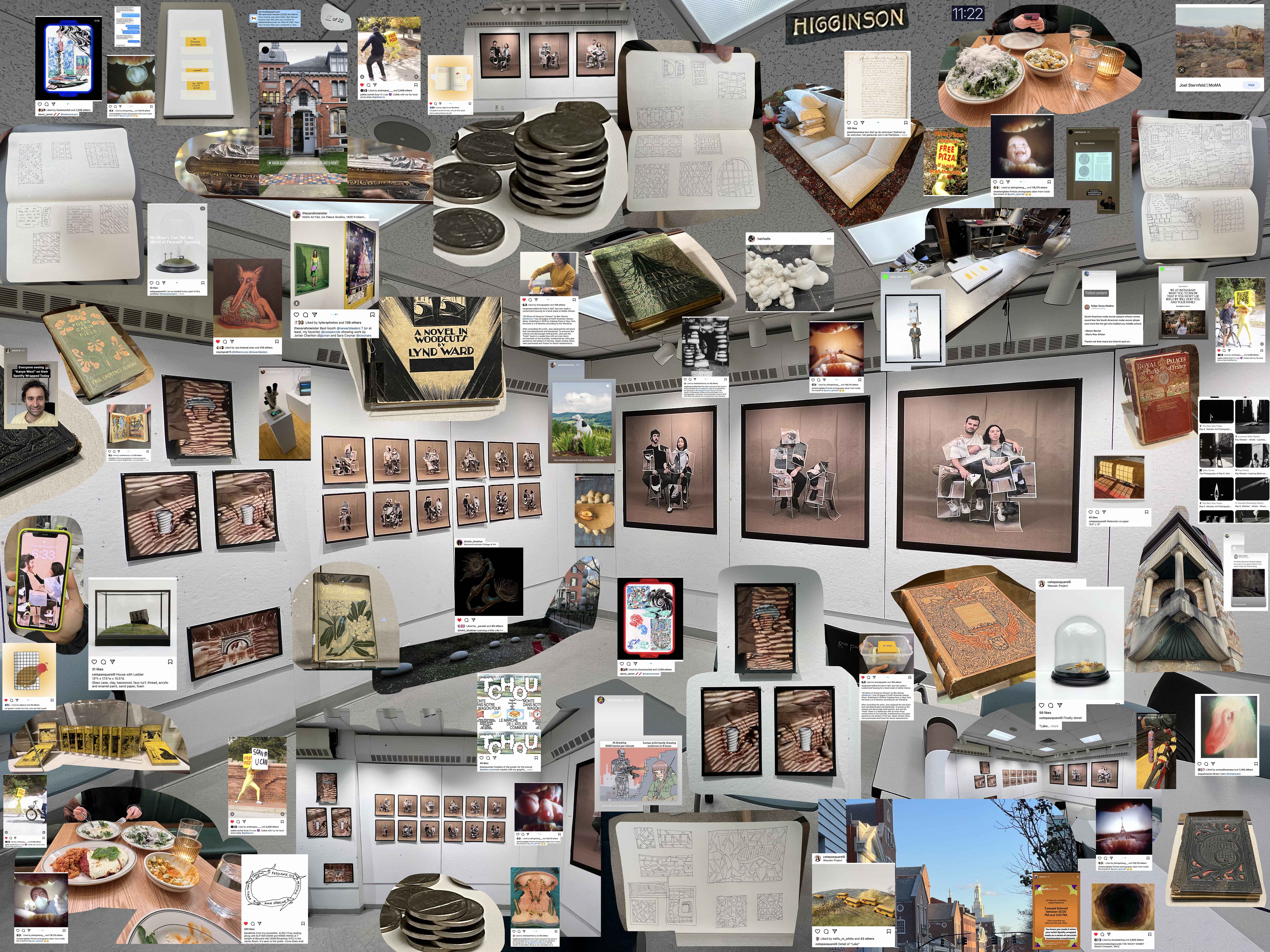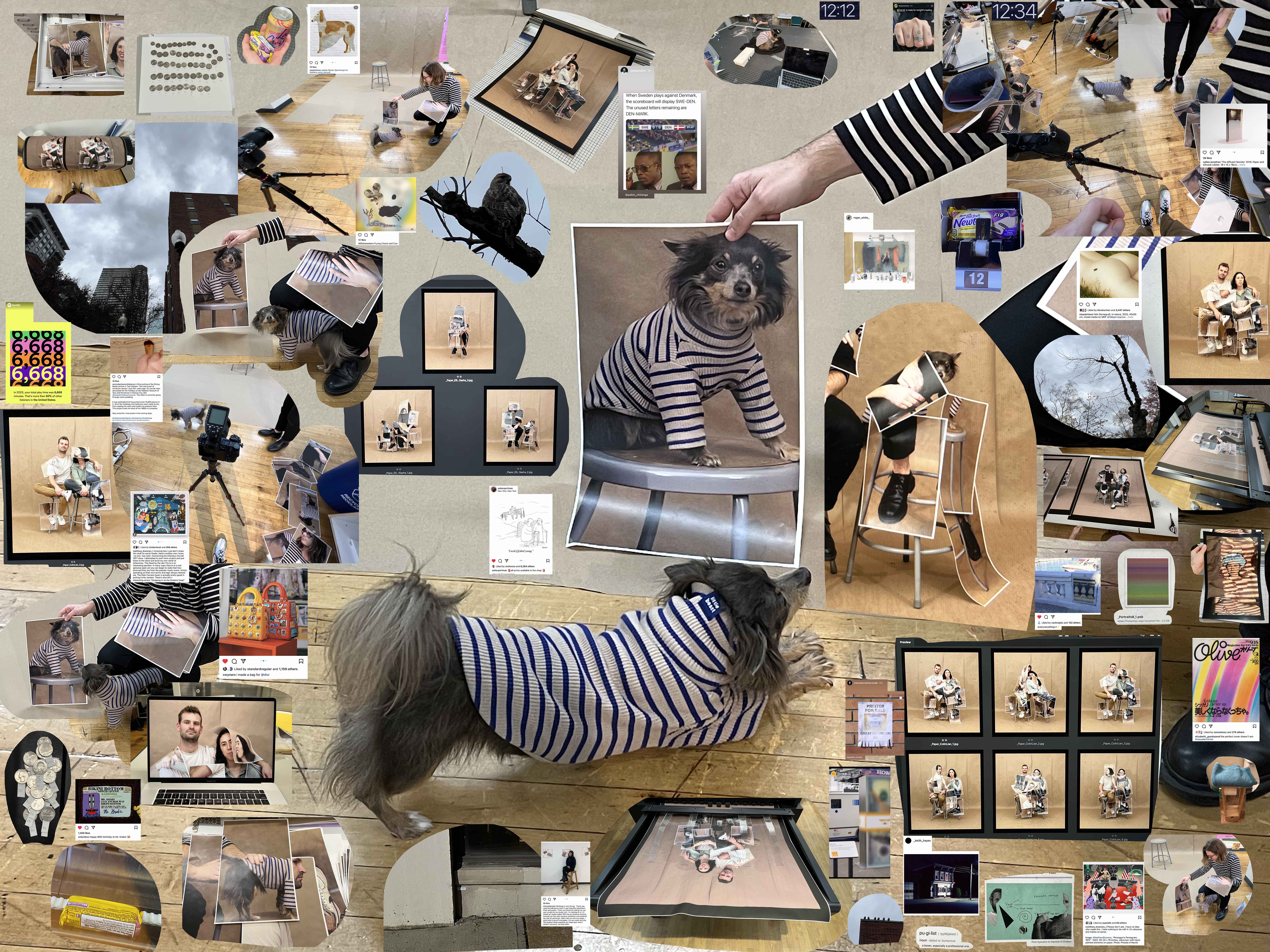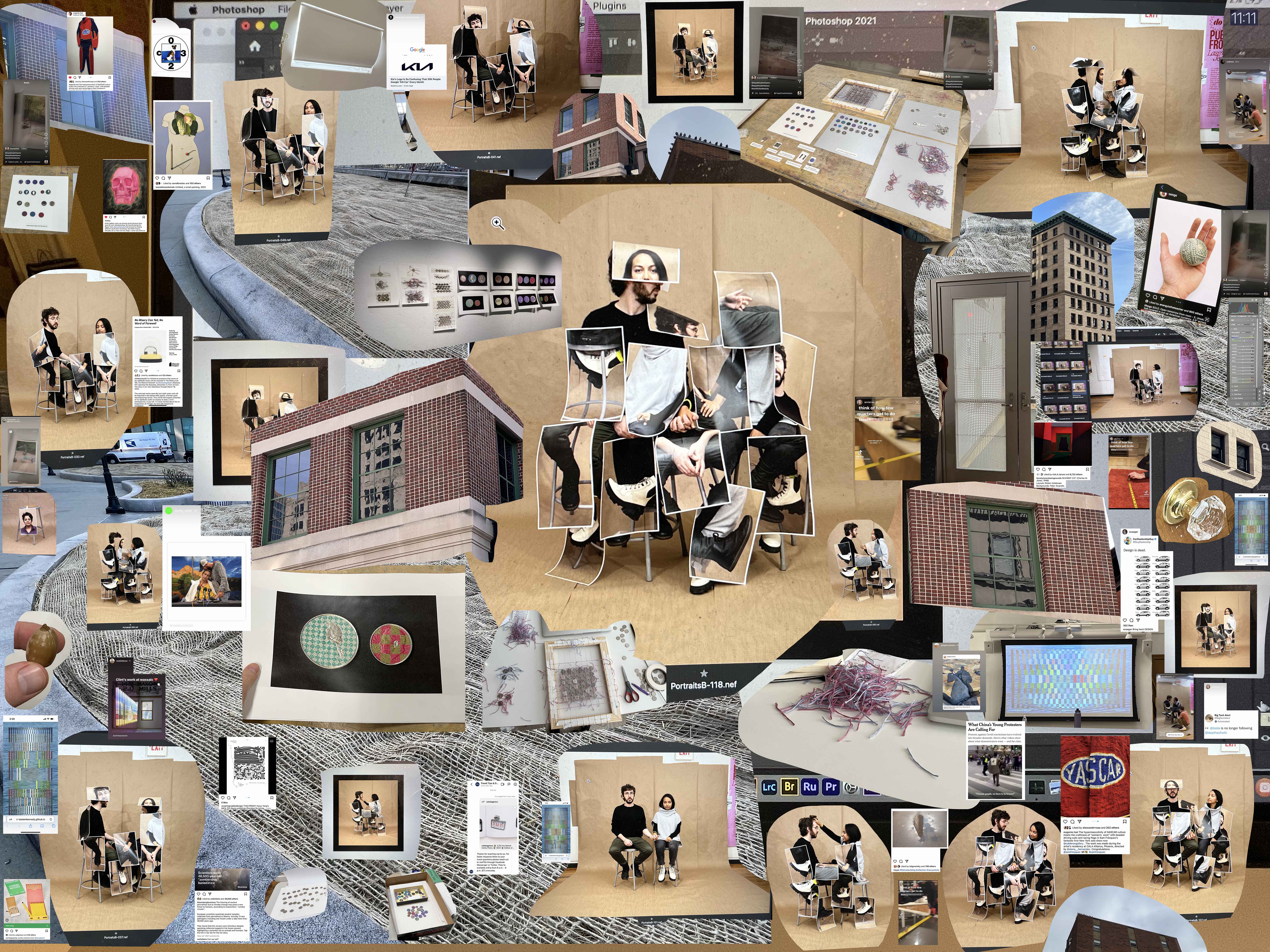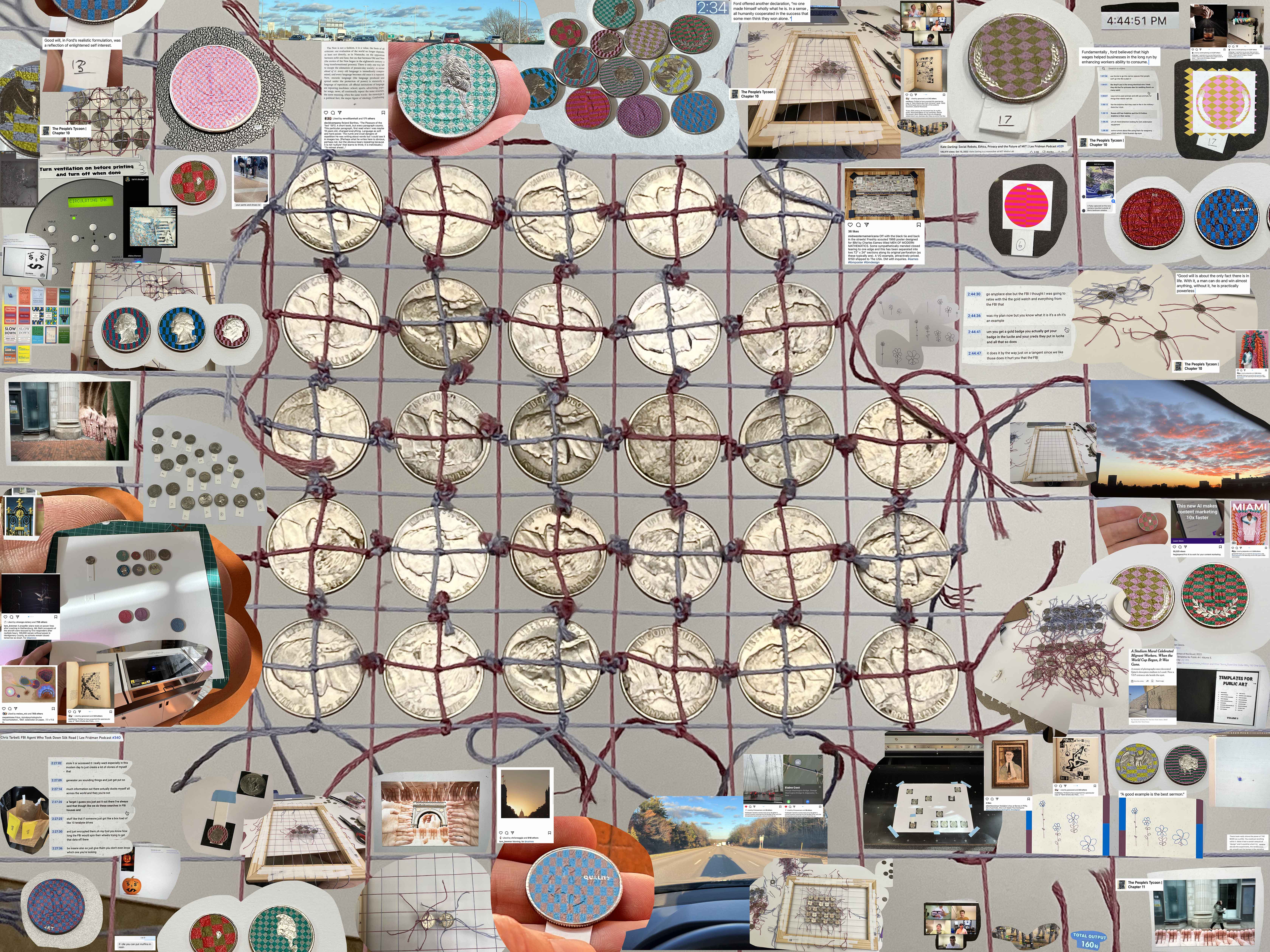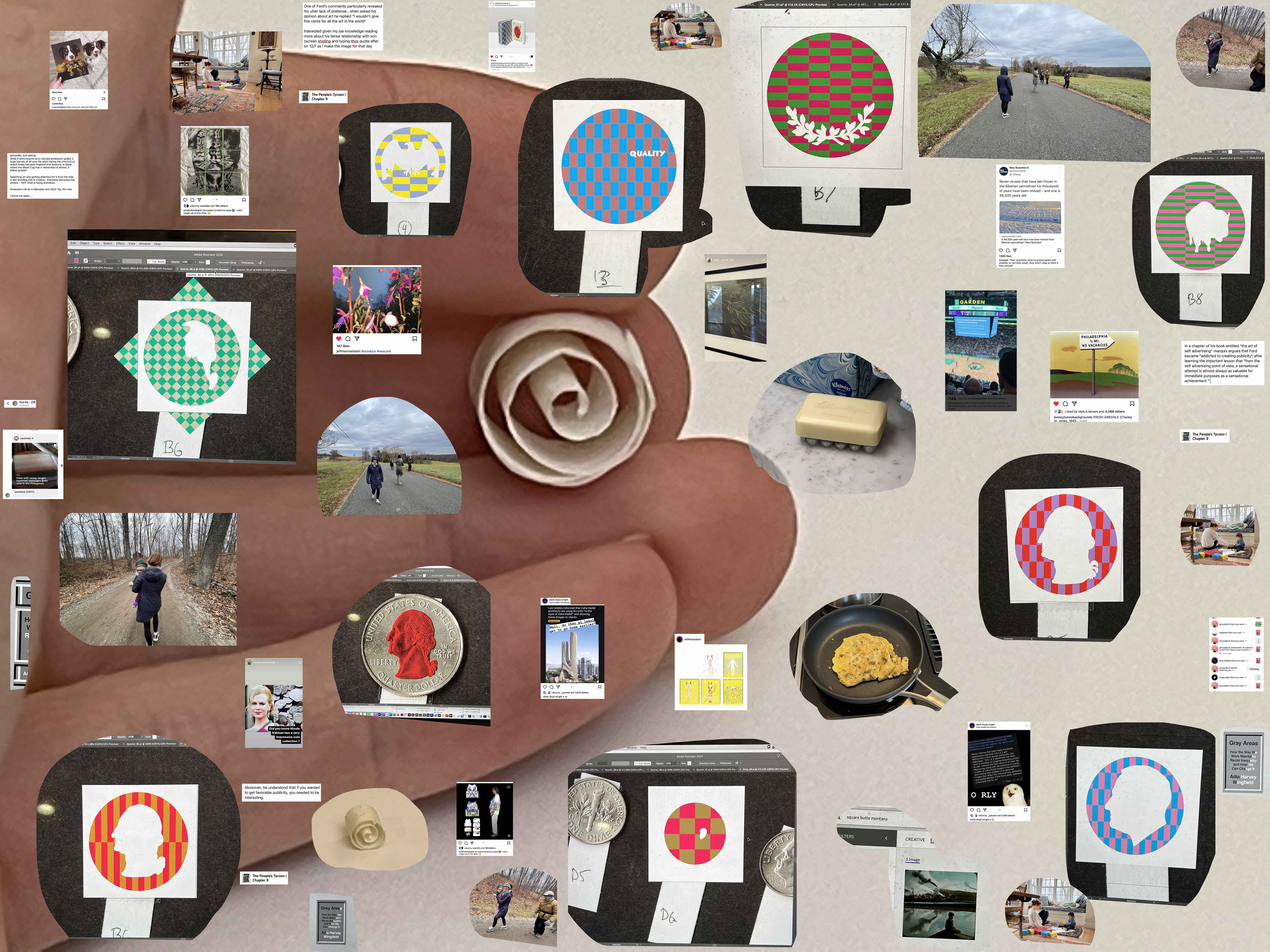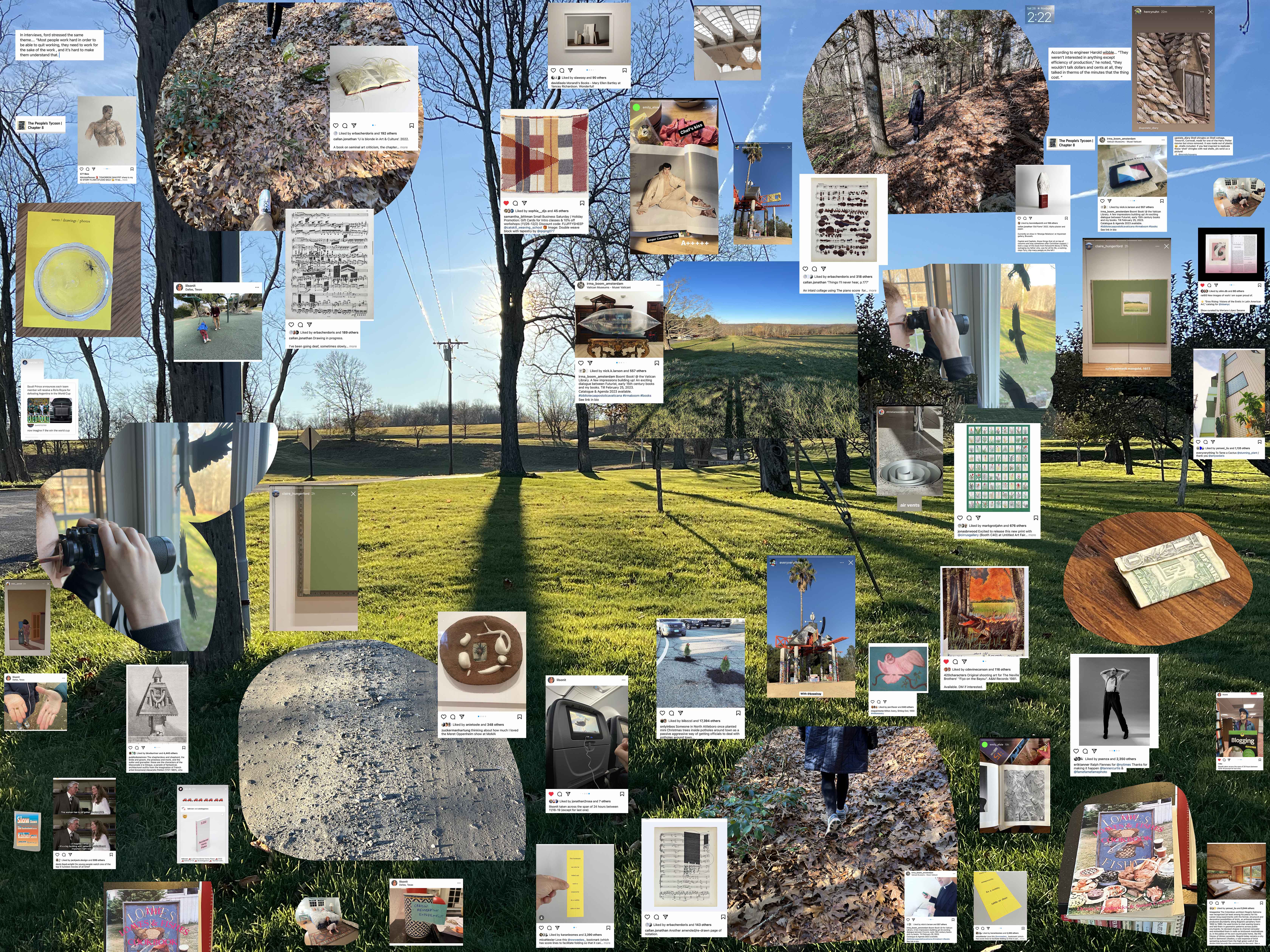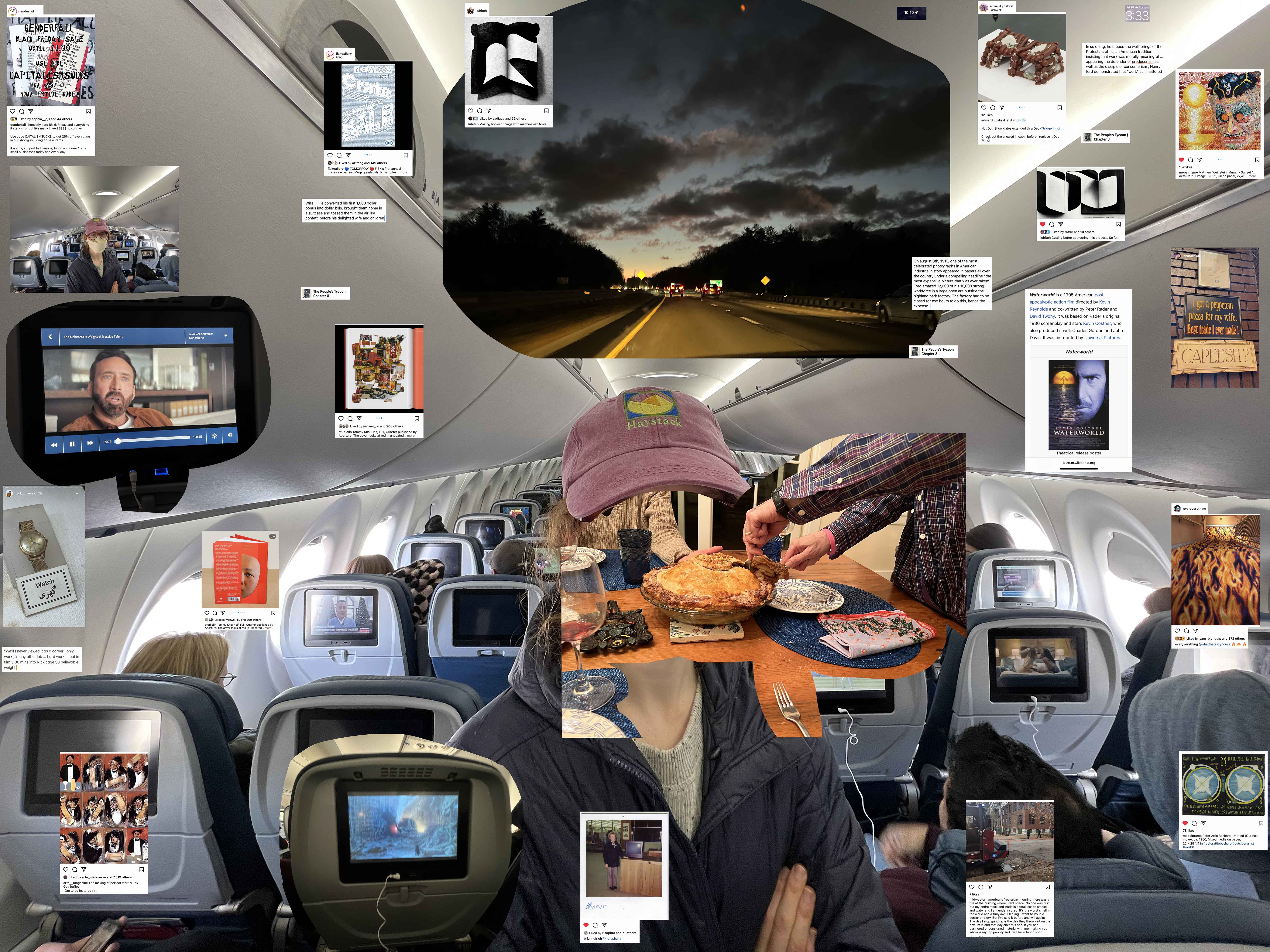Wednesday, December 14, 2022
If you're afraid of everything, you know, you're basically overwhelmed. But if you start educating yourself as far as specifically what to prioritize as far as what to worry about, in a war zone, working, protecting somebody, you know. You're not looking at everybody's faces, you're just looking at their hands, because that's what's gonna kill you. You know, that's an example of focalizing, you know, what you're paranoid and what you're afraid of.
— Ed Calderon, "Ed Calderon: Mexican Drug Cartels | Lex Fridman Podcast #346"
Tuesday, December 13, 2022
A SUPERFLUOUS ILLUSTRATION OF HELLGATE BRIDGE!
— New York Review of Architecture #32
Monday, December 12, 2022
Ford also blamed economic paralysis on a faulty understanding of money and its proper function in the economy. He relentlessly insisted that Americans confused money with wealth. Though money needed to circulate freely in order to facilitate the buying and selling of goods, he admitted, it had no intrinsic value. “Money... may represent wealth, but it is not wealth itself.” Ford wrote.
— Steven Watts, The People's Tycoon: Henry Ford and the American Century
Sunday, December 11, 2022
It's just tough because you can never make the same soup twice.
— Lily
Saturday, December 10, 2022
When Harold Hicks once urged Ford to complete the project, he replied, “Oh, no, I don't want to hurry up and get that done. If I get that done, I'll never have anything to do on this earth. When you don't have anything to do, then you're ready to die.”
— Steven Watts, The People's Tycoon: Henry Ford and the American Century
Friday, December 9, 2022
Artists Once Known, and No Longer Remembered
— MFA Boston wall text, instead of saying "Unknown"
Thursday, December 8, 2022
All the tags have RFID.
— UNIQLO employee
Wednesday, December 7, 2022
Artists constantly bring images of celebrities into their work as a recognizable entry point for viewers to take an interest in their practice.
— Brad Troemel, "CELEBRITY ART REPORT"
Tuesday, December 6, 2022
Do they make an ai generator but for music? Like if I wanted to listen to Baa Baa Black Sheep by Raffi in the style of Slipknot?
— @benjibours
Monday, December 5, 2022
A good thing will sell itself.” Ford declared. “We must make good things in this country, and not do too much talking about them. You've just got to let people know where to get them, and that's all.”
— Steven Watts, The People's Tycoon: Henry Ford and the American Century
Sunday, December 4, 2022
Regional Piece
— Title of work by Ree Morton, ICA Boston
Saturday, December 3, 2022
It's mostly for the typing.
— M (probably paraphrased)*
Friday, December 2, 2022
Tonight, Gary Lezak gave his final weather forecast here at KSHB 41. Thank you for a great 30 years. We will miss you.
— @kshb41
Thursday, December 1, 2022
Whole idea of pointing at things, which is everything the camera does.
— Brian*
Wednesday, November 30, 2022
When Sweden plays against Denmark, the scoreboard will display SWE-DEN. The unused letters remaining are DEN-MARK.
— @pablo_chilenga via @jalejandro
Tuesday, November 29, 2022
think of how few quarters get to do this!!!!!!!!!!!!!!!!!
— @annierau caption on @theaustinweber TikTok video of a quarter rolling down an extended tape measure to hit a small bell
Monday, November 28, 2022
I've always said that though, like we do these searches in FBI, houses and stuff like that, if someone just got like a box load of like 10 terabyte drives and just encrypted them. Oh my God you know how long the FBI would spin their wheels trying to get that data off there. It would be Insane.
— Chris Tarbell, "Chris Tarbell: FBI Agent Who Took Down Silk Road | Lex Fridman Podcast #340"
Sunday, November 27, 2022
Did you know that Nicole Kidman has a very impressive coin collection?
— @moneymuseumboston
Saturday, November 26, 2022
“They weren't interested in anything except efficiency of production,” he noted. “They wouldn't talk dollars and cents at all. They talked in terms of the minutes that the thing cost.”
— Steven Watts, The People's Tycoon: Henry Ford and the American Century
Friday, November 25, 2022
On August 8, 1913, one of the most celebrated photographs in American industrial history appeared in papers all over the country under a compelling headline: “The Most Expensive Picture That Was Ever Taken.” Ford amassed twelve thousand of his sixteen-thousand-strong workforce in a large open area outside the Highland Park factory—the factory had to be closed for two hours to do this, hence the expense.
— Steven Watts, The People's Tycoon: Henry Ford and the American Century
